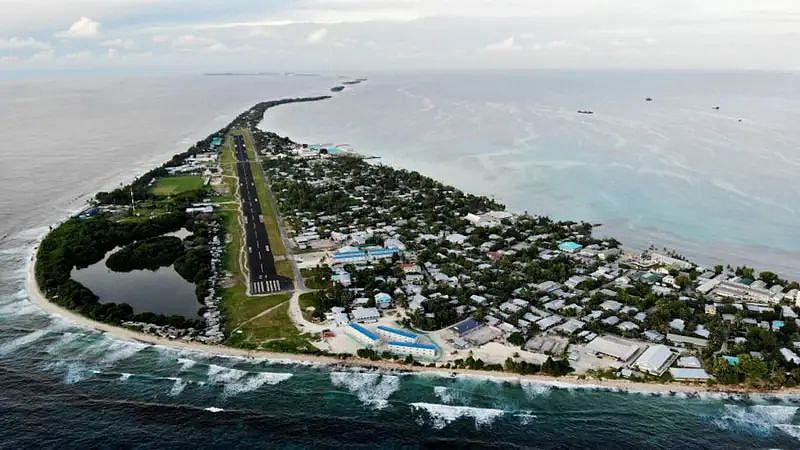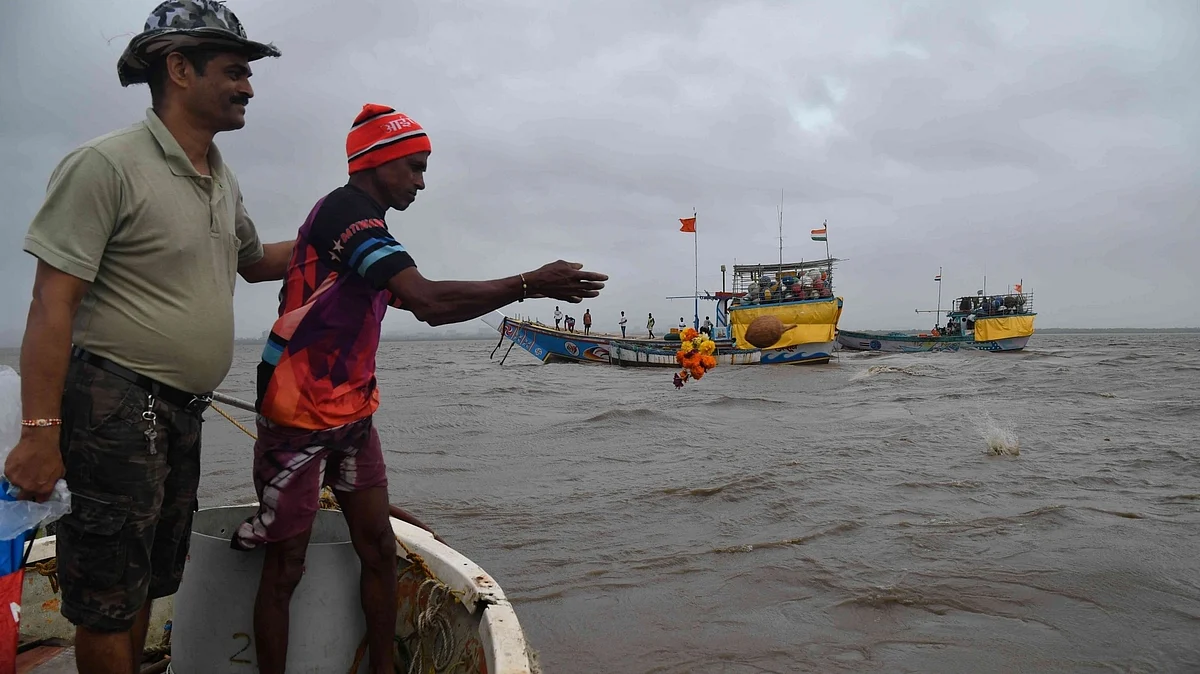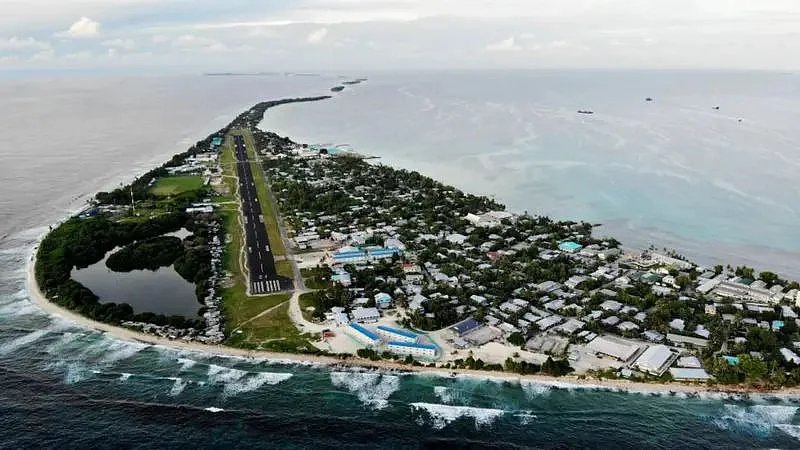In a landmark move, the Pacific island nation of Tuvalu is preparing to become the first country in the world to relocate its entire population due to climate change. Scientists warn that the country, made up of nine low-lying coral islands, may become completely uninhabitable within the next few decades.
Tuvalu’s vulnerability to climate change
Tuvalu, home to just over 11,000 people, sits at an average elevation of only two meters above sea level, making it one of the most vulnerable countries to the impacts of rising oceans. Already, two of its coral atolls are mostly underwater, and the sea level has risen by 15 centimeters over the past 30 years, according to NASA’s Sea Level Change Team.
With the current pace of global warming, experts predict that most of Tuvalu could be submerged by 2050, as storm surges, coastal erosion, and frequent flooding worsen. Some estimates suggest that the entire nation could become uninhabitable in under 80 years.
Australia-Tuvalu falepili union
In response to the looming threat, Australia and Tuvalu signed the Falepili Union Treaty in 2023, a climate migration agreement that will offer a lifeline to Tuvaluan citizens. Under the treaty, 280 Tuvaluans per year will be granted permanent residency in Australia, giving them access to healthcare, education, housing, and employment opportunities.
The treaty represents a first-of-its-kind international pact focused specifically on climate-induced migration, providing a legal and dignified path for affected citizens. The first round of applications ran from June 16 to July 18, with a ballot to select the first 280 migrants held on July 25. The Australian High Commission in Tuvalu received 8,750 registrations, highlighting widespread interest and concern.
Up to 40% of Tuvalu’s population may relocate in 10 years
According to migration experts, combining this program with existing migration routes to Australia and New Zealand could see up to 4% of Tuvalu’s population relocating each year. This means that within a decade, nearly 40% of Tuvaluans may have resettled abroad. Some may return home or travel back and forth depending on family, work, and cultural ties.
Tuvalu’s Prime Minister Feleti Teo has emphasised the urgency of global climate action and is pushing for a new international treaty to safeguard the rights of nations displaced by rising seas. Meanwhile, Australia’s Foreign Minister Penny Wong said the Falepili Union aims to ensure Tuvaluans can move and settle “with dignity as climate impacts worsen.”
Tuvalu's situation is becoming a powerful symbol of the climate crisis. While the islanders are taking practical steps to preserve their culture and livelihood through migration, the case raises critical questions about the fate of other low-lying nations, such as the Maldives, Kiribati, and the Marshall Islands, which face similar threats.










